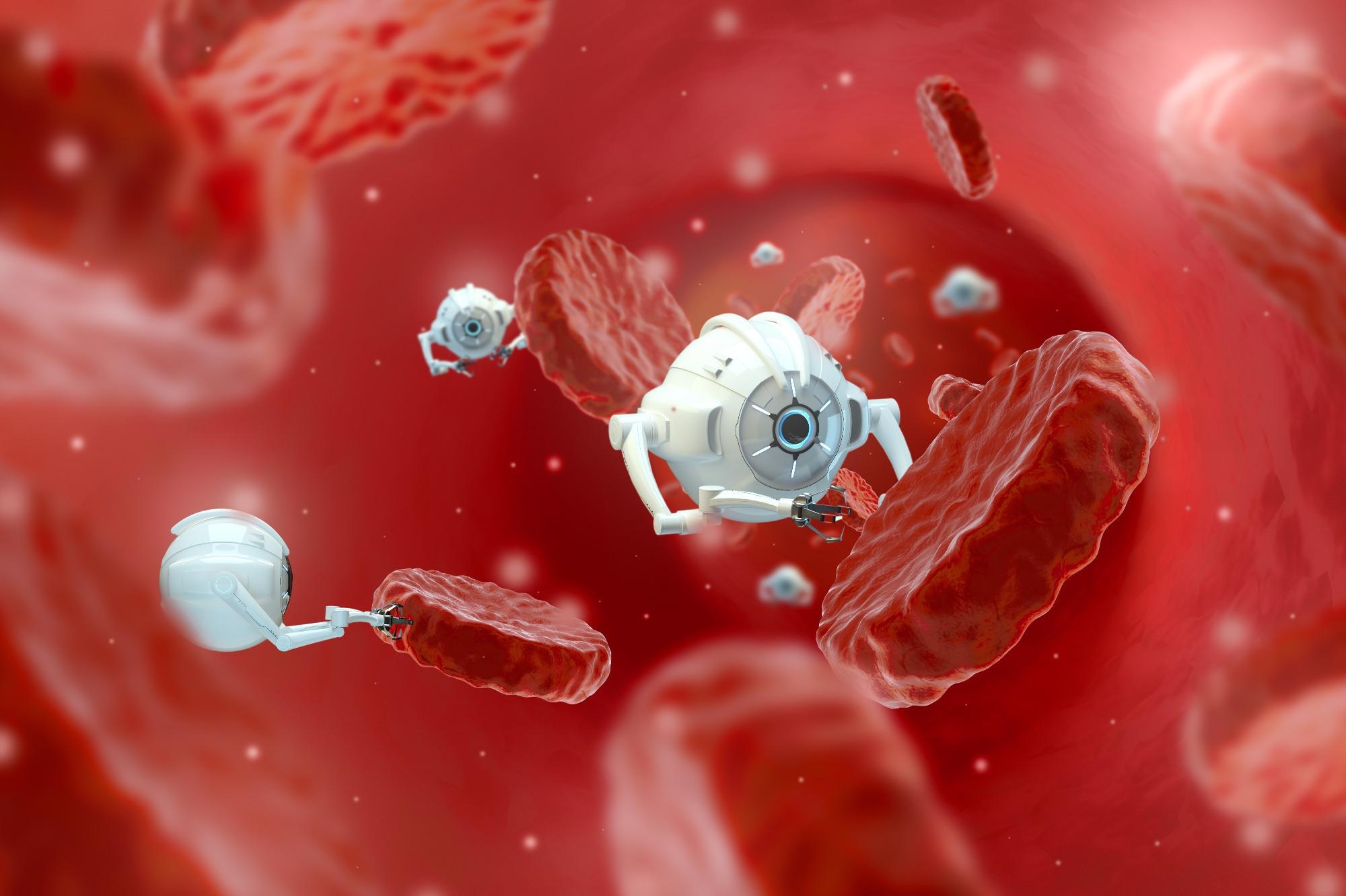Aug 13 2021Reviewed by Alex Smith
Scientists from the University of Arizona Health Sciences recently performed a study that exhibits the ability to enhance cancer treatment for colorectal cancer and melanoma. The study involved the use of nanotechnology to deliver chemotherapy in a manner that makes it highly effective against aggressive tumors.

Image Credit: Shutterstock.com/ Marko Aliaksandr
The study has been recently reported in the Nature Nanotechnology journal.
I’ve always been interested in harnessing the intrinsic immunity to fight against cancer. To do this in a safe and effective way, nanotechnology comes into play because of its ability to improve drug movement and therapeutic efficacy, as well as the potential to reduce systemic toxicities. My hope is that these innovative nanotherapeutics and therapeutic regimens eventually will help cancer patients combat cancers more effectively and safely.
Dr. Jianqin Lu, BPharm, PhD, Assistant Professor of Pharmaceutics and Pharmacokinetics, Department of Pharmacology and Toxicology, College of Pharmacy, University of Arizona
Lu is also an associate member of the University of Arizona Cancer Center.
Immunotherapies play a role in boosting the potential of the immune system to repel cancer cells. Immune checkpoints serve as regulators of the immune system and are crucial in preventing a random attack on healthy cells.
A few types of cancer can bypass such checkpoints, and therefore, enable cancerous cells to evade detection and spread continuously. Immune checkpoint blockade (ICB) is a newly developed therapy that has the ability to primarily “release the brakes” on the immune system and help the body to defend itself.
For certain types of cancer, ICB therapies have shown good hope, but it does not become a success for every patient. For instance, only around 4% of patients suffering from colorectal cancer will respond to ICB therapy. This form of cancer is considered to be the second major cause of cancer-related deaths in the United States, stated Dr. Lu.
The newly performed studies concentrated on methods that would help improve the strength of ICB therapies. This could be achieved by integrating them with chemotherapeutic agents like camptothecin. Even though camptothecin is potent, it is unstable and exhibits poor solubility in water. It can even cause serious side effects for healthy cells.
Dr. Lu and his colleagues developed the first nanotherapeutic platform of its type to cross these barriers. The nanotechnology delivery method helped scientists to improve the potential of camptothecin to synergize with ICB therapies, thereby making them highly effective against aggressive tumors.
To render a more effective ICB therapy, we have developed a nanotherapeutic platform that can switch the tumors from ‘immune-cold’ to ‘immune-hot’. As a result, this nanotherapeutic platform was able to increase the effectiveness of the ICB therapy to eradicate a large portion of early-stage colorectal cancer tumors while concurrently activating the body’s memory immunity, preventing tumor recurrence.
Dr. Jianqin Lu, BPharm, PhD, Assistant Professor of Pharmaceutics and Pharmacokinetics in Department of Pharmacology and Toxicology, College of Pharmacy, University of Arizona
Lu is also a member of the BIO5 Institute and the Southwest Environmental Health Sciences Center
The researchers bound camptothecin to sphingomyelin, a naturally occurring lipid that occurs on the cells’ surface. The mixture of the two molecules into a nanovesicle known as camptothesome stabilized camptothecin. It helped enhance its potency and reduce systemic toxicities.
Furthermore, the nanotech delivery method enhanced the tumor uptake of the camptothesome in a rodent model. In this model, the tumor was deeply penetrated with the effective release of chemotherapy.
Then, Dr. Lu and the researchers went on to develop an approach to load an immune checkpoint inhibitor that targets one of the main checkpoints called indoleamine 2, 3-dioxygenase (IDO1), within the camptothesomes.
Upon being integrated with inhibitors that target other immune checkpoints called PD-1and PD-L1, this nanotherapeutic approach helped remove a considerable portion of clinically difficult-to-treat late-stage metastatic colorectal cancer and melanoma tumors, opening the door for additional studies.
The scientists observed that their nanotechnology platform could be utilized to offer a variety of cancer therapeutics. It also has a considerable head start in the drug development pipeline as it has been derived from sphingomyelin. It is a lipid that has already been approved by the U.S. Food and Drug Administration.
Dr. Lu looks to join hands with oncologists at the UArizona Cancer Center to further improve the nanotherapeutic system, making it ideal for an initial phase clinical trial.
The co-authors of the study include Aaron James Scott, MD, associate professor in the UArizona College of Medicine — Tucson, and member of the UArizona Cancer Center; and from the Department of Pharmacology and Toxicology, Zhiren Wang, PhD, a postdoctoral research associate; Weiguo Han, PhD, an assistant research professor; former PharmD student Nicholas Little; and former undergraduate students, Jiawei Chen, Kevin Tyler Lambesis, and Kimberly Thi Le.
This study was financially supported in part by the National Institute of Environmental Health Sciences (P30 ES006694), a division of the National Institutes of Health, the National Cancer Institute (R01CA092596 and P30 CA023074), also a division of the National Institutes of Health, and the UArizona BIO5 Institute and Arizona’s Technology and Research Initiative Fund.
Journal Reference:
Wang, Z., et al. (2021) Immunogenic camptothesome nanovesicles comprising sphingomyelin-derived camptothecin bilayers for safe and synergistic cancer immunochemotherapy. Nature Nanotechnology. doi.org/10.1038/s41565-021-00950-z.
Source: https://uahs.arizona.edu/